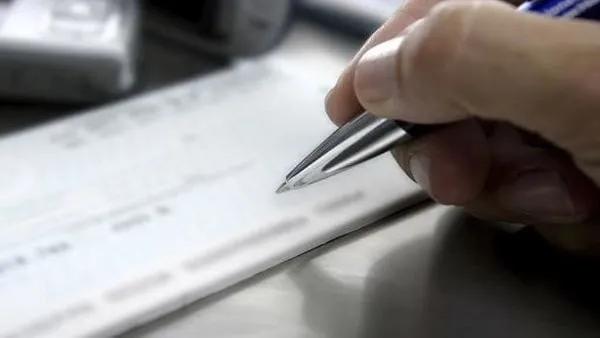
– Advertisement –
Bank Cheque: Even though online transactions have gained momentum in the digital age, the use of cheques is still common for large sums of money. Whenever you deposit a cheque in a bank, you are asked to sign the back of the cheque. Do you know why this is done? Is it mandatory to sign the back of the cheque?
The need to sign the back of a cheque depends on the type of cheque. First, let us talk about a bearer cheque. This is a common cheque in which the name of the person is written, he or any person holding the cheque can withdraw money from the bank. Therefore, for the authenticity and identification of a bearer cheque, the bank takes a signature on the back of the cheque. This signature belongs to the person who is depositing the cheque in the bank.
Account Payee Cheque is more secure. This cheque has two parallel lines (//) and “Account Payee” written on it. Its money is deposited directly into the bank account, so in this case there is no need to sign the back of the cheque.
As per Reserve Bank of India (RBI) regulations, it is mandatory to sign the back of a bearer cheque. If you are depositing a bearer cheque in the name of another person, the bank takes a signature to verify your identity.
Sometimes even if you deposit a cheque in your own name, the bank may ask for a signature for its records. This signature ensures the authenticity of the transaction and acts as evidence in case of any dispute in the future.
The signature on the back of the check assures the bank that the money has reached the right person. It helps record the transaction and reduces the risk in case the check is lost or misused. An incorrect or careless signature can put your money at risk.
It is important to exercise caution at every step when transacting with a check. When re-signing the back of the check, make sure you are following the correct procedure. This will keep your money safe and there will be no mistakes in the transaction.
– Advertisement –
#Sign #Cheque #LittleKnown #Reason #People #WhoWiki.org

